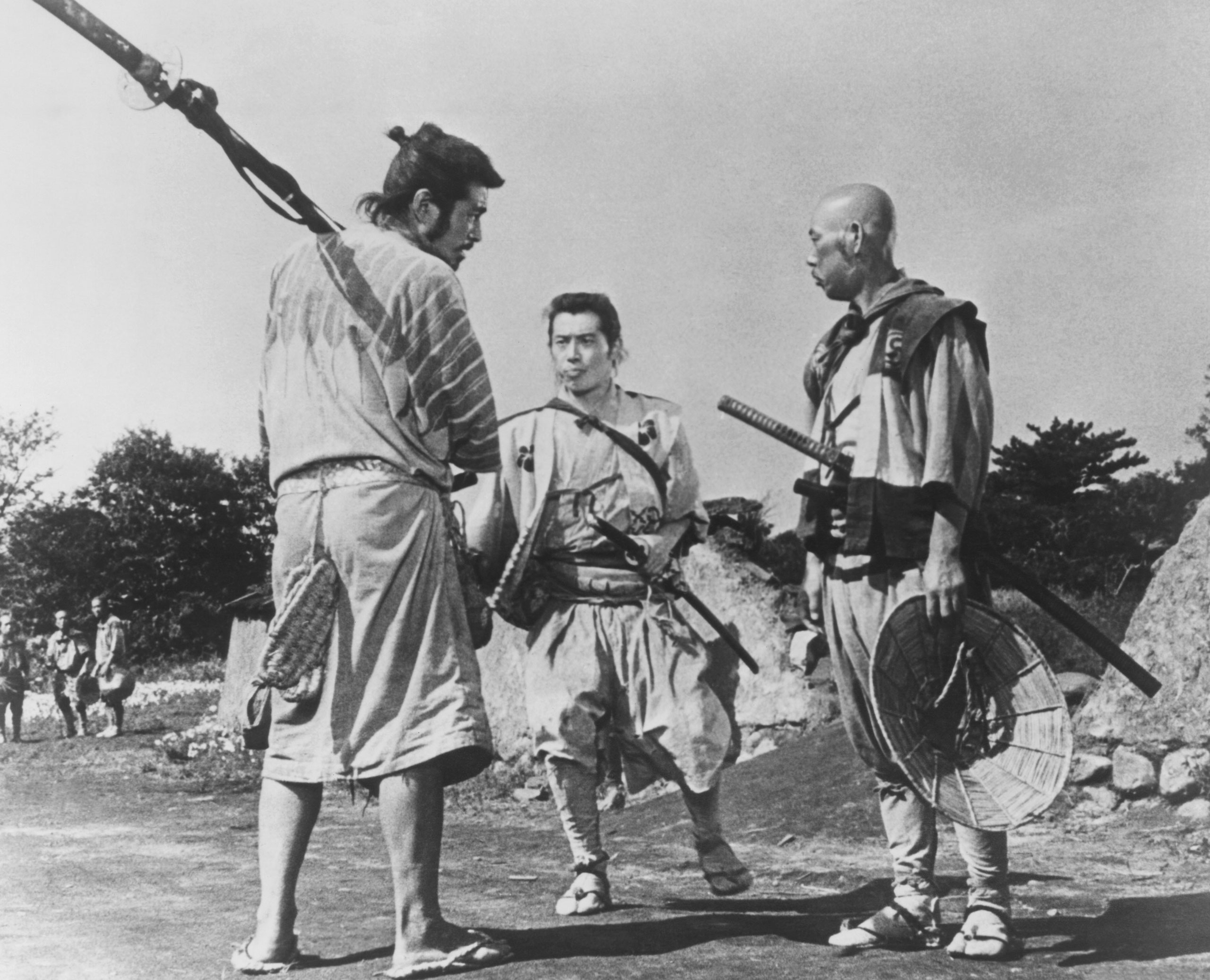We think of epic filmmaking as being grand in scope, and Akira Kurosawa’s Seven Samurai certainly is that. Yet what’s most surprising about it—and what makes it truly great—is Kurosawa’s delicacy of touch. This movie, about a group of late-16th-century farmers who enlist the aid of samurai warriors to help them fend off bandits, speaks in a bold language of symphonically precise battle scenes and rough-and-tumble violence that’s more stately than scrappy. There’s eloquence in the corners, too, as when the loose-cannon samurai-wannabe Kikuchiyo, played with boisterous vitality by Toshiro Mifune, teases the village kids while distributing the warriors’ rice rations among them. And then there’s the moment, so offhanded you barely see how it begins, when the resplendent Takashi Shimura—as Kambei Shimada, the veteran samurai leading the mission—scoops up a village tot and cradles her with one arm as he details a battle plan for the locals. All of it is anchored by Fumio Hayasaka’s soundtrack, a marvel of baritone sax and bongos, of woodwinds, trumpet, and bamboo sticks—strings are used only sparingly, and somehow their absence only intensifies the urgency of the action. Hayasaka had composed the music for nearly every Kurosawa picture since 1948’s Drunken Angel; he died of tuberculosis at age 41, not long after Seven Samurai was released. His death meant a sad end to a great partnership, but just listen to what he left behind, in a movie whose majesty stretches out to the margins and beyond.
- The 100 Most Influential People of 2024
- Coco Gauff Is Playing for Herself Now
- Scenes From Pro-Palestinian Encampments Across U.S. Universities
- 6 Compliments That Land Every Time
- If You're Dating Right Now, You're Brave: Column
- The AI That Could Heal a Divided Internet
- Fallout Is a Brilliant Model for the Future of Video Game Adaptations
- Want Weekly Recs on What to Watch, Read, and More? Sign Up for Worth Your Time
